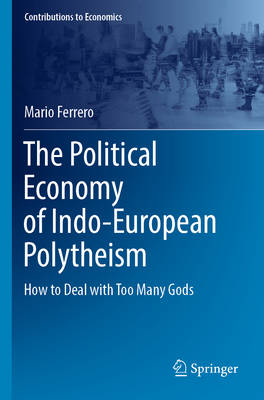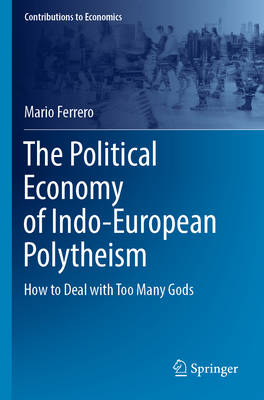
- Afhalen na 1 uur in een winkel met voorraad
- Gratis thuislevering in België vanaf € 30
- Ruim aanbod met 7 miljoen producten
- Afhalen na 1 uur in een winkel met voorraad
- Gratis thuislevering in België vanaf € 30
- Ruim aanbod met 7 miljoen producten
Zoeken
€ 89,95
+ 179 punten
Uitvoering
Omschrijving
This book sheds new light on the evolution and transformation of polytheistic religions. By applying economic models to the study of religious history and by viewing religious events as the result of rational choices under given environmental constraints, it offers a political economy perspective for the study of Indo-European polytheism. The book formally models the rivalry or competition among multiple gods in a polytheistic system and the monotheistic solution to this competition. Presenting case studies on the transformation and demise of various polytheistic religions, it highlights the pivotal role of the priestly class in driving religious change and suggests a joint explanation for the demise of Greco-Roman religion and the resilience of Hinduism and Zoroastrianism. It will appeal to scholars of the economics of religion and religious history and to anyone seeking new insights into the birth and death of religions, and the birth of monotheism in particular.
Specificaties
Betrokkenen
- Auteur(s):
- Uitgeverij:
Inhoud
- Aantal bladzijden:
- 188
- Taal:
- Engels
- Reeks:
Eigenschappen
- Productcode (EAN):
- 9783030979454
- Verschijningsdatum:
- 25/04/2023
- Uitvoering:
- Paperback
- Formaat:
- Trade paperback (VS)
- Afmetingen:
- 156 mm x 234 mm
- Gewicht:
- 290 g

Alleen bij Standaard Boekhandel
+ 179 punten op je klantenkaart van Standaard Boekhandel
Beoordelingen
We publiceren alleen reviews die voldoen aan de voorwaarden voor reviews. Bekijk onze voorwaarden voor reviews.











